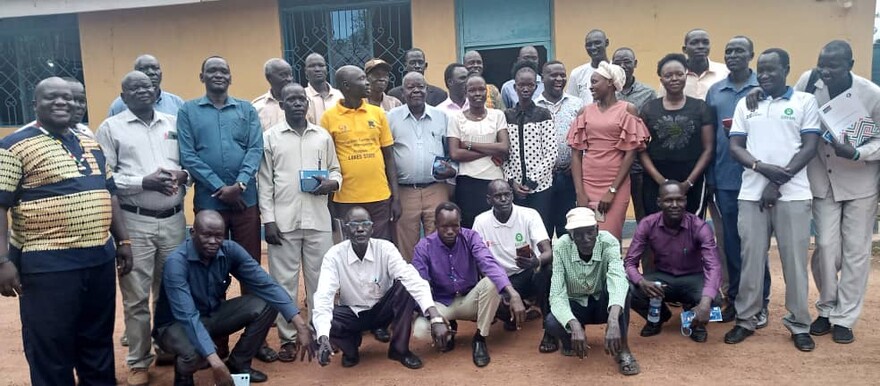Civil Society Organization representatives and participants from various institutions demand that the Lakes state government promote public accountability and transparency.
The civil society representatives made this call at the end of a two-day public accountability and transparency forum held in Rumbek on Friday.
A representative of Lakes state ministry of Finance and Economic Planning, Mabor Kau Akec, has said in the new budget, his ministry will request its development partners, especially the Norwegian People’s Aid (NPA) and United Nations Development Programme (UNDP) to organize a budget conference. He said there is a need for the public to know what is in the state budget.
He said the success of the budget conference will be expensive and thus requires the support of all stakeholders and development partners.
Laat Mathiang Bol, a deputy chairman of the Anti-Corruption Commission in Lakes State, said accountability and transparency start with every individual resident of the state.
“We need to be held accountable for what we are doing. We need to commit ourselves to participate in all government corners. People like talking and they don’t want to participate, and if you don’t participate, who will change this nation for us?” he asked.
Garnob Makur participated in the workshop and has urged the state government to promote transparency and public accountability through open communication and dialogue for better participation of the citizens in policy and decision-making processes.
“We have learned a lot in this workshop through the inclusive process of the citizens in the budgeting process and open communication. When the government wants to implement the project or formulate the policy, citizen needs consultation,” he said.
“You find an asset bought in a government office without knowledge of where it comes from and without clear procurement procedures,” he revealed.
He said the Constitution of South Sudan puts it clearly that anything that needs to be purchased with public money must go through accountability and transparency processes.
“We also learned about the disposal of public assets and when the government wants to make disposal of public assets. The citizens have a right to know through tendering and bidding, and buying those assets, but that is not the case here. They are the same government constitutional post holders or their relatives and friends that buy them from the government without giving them to the public. The government officials are the ones that are aware of what to do with public assets,” he said.
The public accountability and transparency forum was organized by the Amalna with support from Norwegian People’s Aid and UNDP. It was attended by 50 participants drawn from different institutions and civil society groups.




